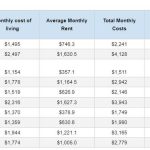‘They could face damages in the millions in future lawsuits’
The Supreme Court has struck down a local law that allowed government officials to steal the equity in a home seized for unpaid taxes – and now the Pacific Legal Foundation, which has fought many such cases, is warning states that still have such laws to get rid of them.
An announcement from the foundation confirmed it dispatched letters to 21 states plus Washington, D.C., demanding “that they change their laws to comply with the recent Supreme Court ruling in Tyler v. Hennepin County.”
That declared home equity theft to be unconstitutional. Multiple governments have used the process to take ownership of a home that has unpaid back taxes. But governments have been taking, like in the recent Minnesota case, a $40,000 property for $15,000 in taxes. They sell the property and keep ALL the money.
“Last Thursday, in a major victory for property rights, the Supreme Court ruled that home equity theft is unconstitutional,” said Jim Manley, state legal policy deputy director at Pacific Legal Foundation. “This ruling has immediate implications for states that allow home equity theft. If these states don’t change their laws to comply with the court’s ruling, they could face damages in the millions in future lawsuits.”
WND reported on the Supreme Court ruling, which greatly affected the equity theft practice.
The fight at hand involved a condominium formerly owned by Geraldine Tyler in Hennepin County, Minnesota. Still, the same facts have played out over and over across the nation in recent years. Some state laws authorized this specific action.
In this case, Tyler owed about $15,000 in unpaid taxes and penalties, so the county “seized the condo and sold it for $40,000, keeping the $25,000 excess over Tyler’s tax debt for itself,” the court said.
She sued, charging the county unconstitutionally retained the excess value of her home in violation of the Takings Clause of the Fifth Amendment and the Excessive Fines Clause of the Eighth Amendment.
Lower courts dismissed her charges.
But the high court’s ruling said Tyler plausibly charged the retention of the excess value above her debt violated the Constitution.
The ruling said that the excess value of confiscated property protected by the clause “depends on state law.” Still, state law “cannot be the only one because otherwise, a state could ‘sidestep the Takings Clause by disavowing traditional property interests’ in assets it wishes to appropriate.”
“History and precedent dictate that, while the county had the power to sell Tyler’s home to recover the unpaid property taxes, it could not use the tax debt to confiscate more property than was due. Doing so effected a ‘classic taking in which the government directly appropriates private property for its own use.'”
The PLF said its recent study found 21 states plus Washington, D.C., allow home equity theft in some form.
The foundation said home equity theft is allowed in Alabama, Arizona, Colorado, Illinois, Maine, Massachusetts, Minnesota, Nebraska, New Jersey, New York, Oregon, South Dakota, and the District of Columbia. Another nine states allow the theft to go on in some circumstances: Alaska, California, Idaho, Montana, Nevada, Ohio, Rhode Island, Texas, and Wisconsin.
It was Chief Justice John Roberts who said in the unanimous ruling, “A taxpayer who loses her $40,000 house to the state to fulfill a $15,000 tax debt has made a far greater contribution to the public fisc than she owed. The taxpayer must render unto Caesar what is Caesar’s, but no more.”












